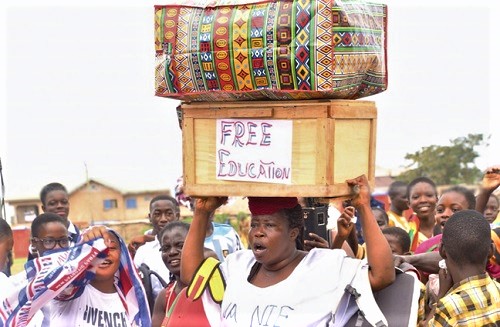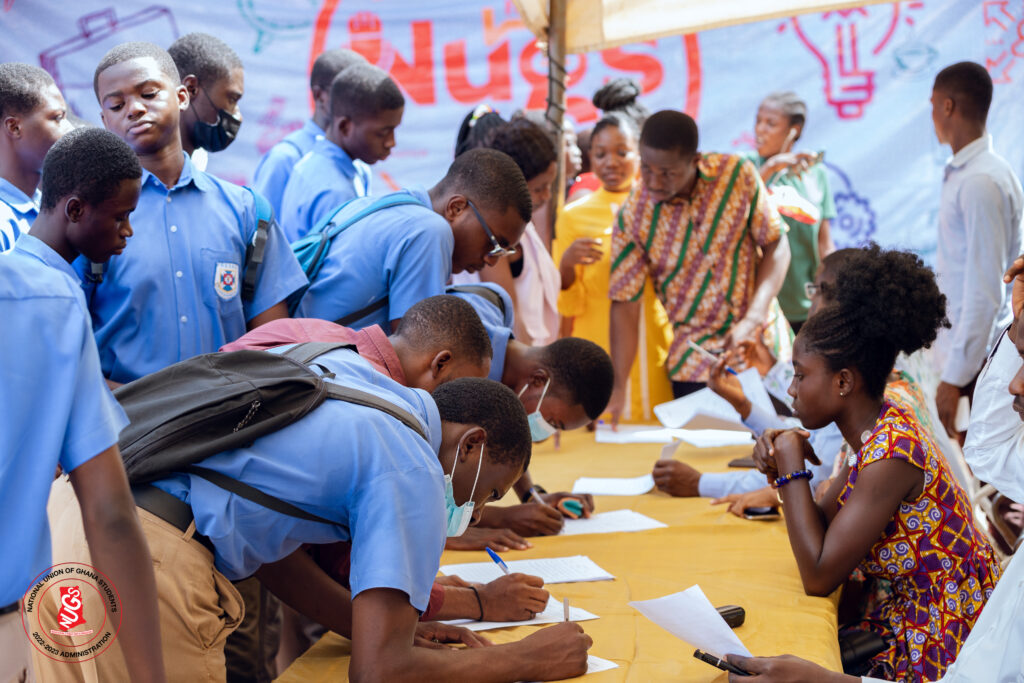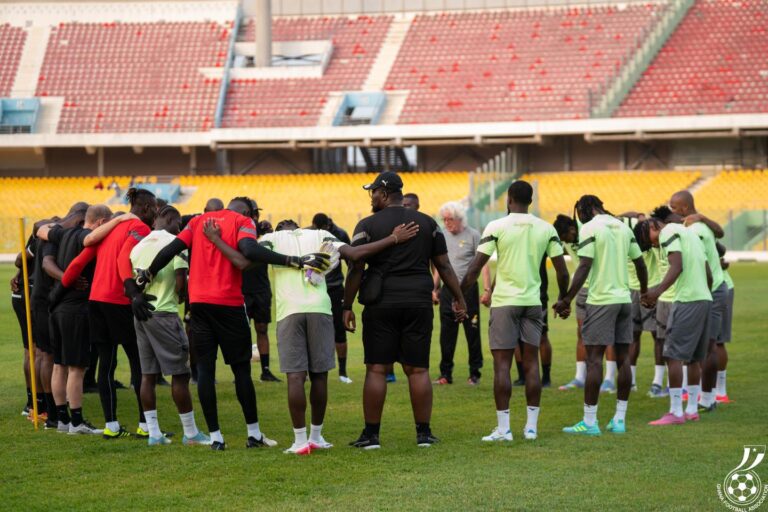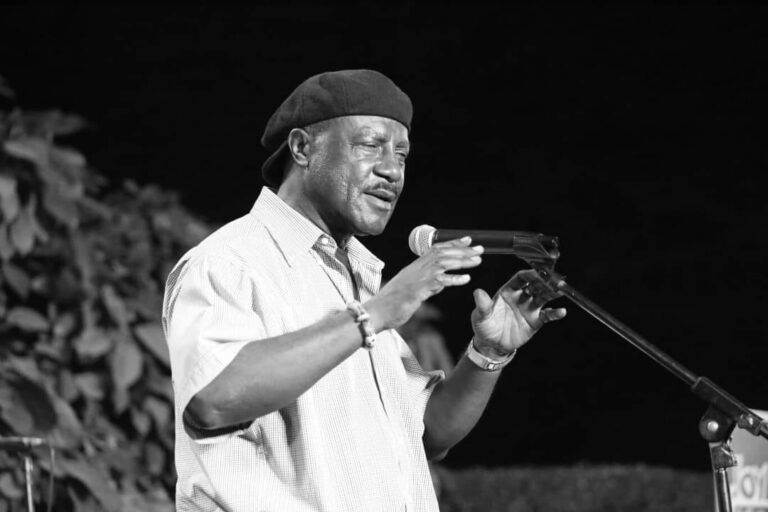The Ghana Education Service (GES) has announced that 99 Senior High Schools (SHSs) have officially been taken off the double-track system and restored to the traditional single-track calendar.
The reform marks a significant step in government’s efforts to enhance the delivery of secondary education under the Free Senior High School (Free SHS) programme, which has dramatically expanded access to education in recent years.

In a press release signed by Daniel Fenyi, Head of Public Relations at GES, the Service disclosed that the transition back to the single-track system has been made possible through increased budget allocations and a more sustainable funding source for education.
According to the statement, the government has:
- Released GH¢1 billion into the Free SHS programme.
- Cleared all outstanding capitation grant arrears, amounting to GH¢72.8 million.
- Paid GH¢2.9 billion into the Ghana Education Trust Fund (GETFund).
- Allocated GH¢122.8 million to cover registration fees for candidates sitting the Basic Education Certificate Examination (BECE).
The release further noted that the School Feeding Programme has received a major boost, with GH¢895 million paid to sustain meals for pupils at the basic level.
In addition to the financial commitments, the GES emphasized steps being taken to strengthen school governance structures. Parent-Teacher Associations (PTAs), which had seen a decline in activity in some schools, have been reactivated to foster community involvement, accountability, and discipline in the education system.
The press release also confirmed that this year’s West African Senior School Certificate Examination (WASSCE) practical costs had been fully paid by government. Similarly, funding for the feeding of special needs schools has also been cleared to ensure inclusivity within the education sector.
The double-track system was first introduced in 2018 to accommodate the rising number of students admitted through the Free SHS policy. By dividing students into two groups — green and gold tracks — the system created space for more students without requiring immediate expansion of infrastructure.
While the policy successfully increased access to education, it also faced criticism for stretching teaching schedules, reducing contact hours, and disrupting family routines. Education stakeholders, including teacher unions and parents, frequently called for a return to the single-track calendar once adequate infrastructure and funding were available.

The decision to revert 99 schools to single track is expected to ease pressure on both students and teachers, creating a more balanced academic calendar. Teachers will now have more consistent schedules, while students will benefit from longer and uninterrupted teaching periods.
Parents and guardians have also welcomed the move, noting that it will reduce the logistical challenges of managing staggered vacations and reopening dates.
The GES reaffirmed its commitment to ensuring the sustainability of the Free SHS policy, which remains a flagship programme of government. It said with stronger funding, governance reforms, and the reintroduction of the single-track system in more schools, Ghana’s education sector is poised to achieve both quality and access.
As the country prepares for future cohorts of students, the restoration of schools to single-track is being hailed as a major step towards balancing mass access with quality outcomes in Ghana’s secondary education system.




